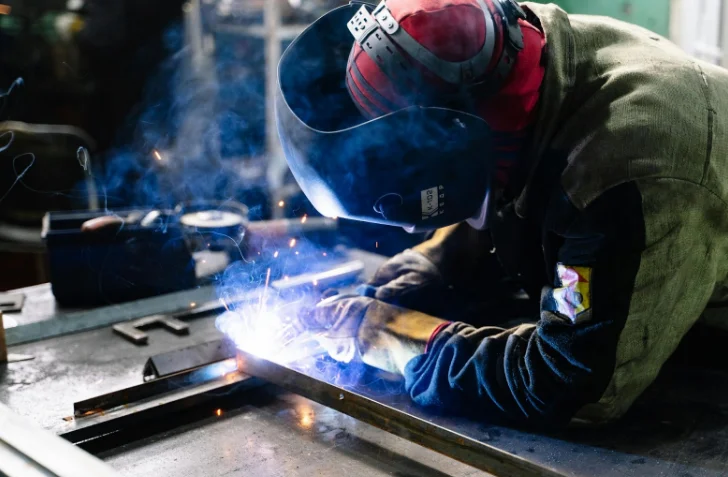
In industrial manufacturing, precision is more than just a benefit; it’s a necessity. Whether it’s creating a complex automotive part or a small component for an electrical system, precision in metal fabrication ensures that parts fit perfectly, function properly, and last longer. Even a millimeter of error can cause performance issues, lead to rework, or increase material waste.
This article explores why precision matters in metal fabrication, how modern methods have improved it, and what to look for when choosing a fabrication partner.
What Is Precision Metal Fabrication?
Precision metal fabrication involves cutting, bending, forming, and assembling metal parts with very tight tolerances. These parts are often used in applications where accuracy is critical, such as aerospace systems, medical devices, and high-performance machinery.
Unlike traditional fabrication, which might allow for a few millimeters of error, precision fabrication aims to produce parts with tolerances as small as 0.01 mm or even less. This high level of accuracy is made possible through advanced technology and highly controlled processes.
Why Precision Matters
Here is why precision matters a lot:
-
Reliable Functionality
Parts that don’t fit perfectly can cause machines to fail or operate inefficiently. In sectors like automotive or energy, such failures can lead to major delays or even safety hazards. Precision ensures that parts function exactly as intended, without the need for on-site adjustments.
-
Faster Assembly
When parts are manufactured to exact specifications, they can be assembled more quickly and easily. This speeds up the production line and reduces labour costs.
-
Lower Material Waste
Precise cutting and forming minimize offcuts and mistakes, which saves material. Over time, this leads to significant cost savings and is better for the environment.
-
Consistent Quality
Precision fabrication allows for repeatability. Whether you’re making 10 or 10,000 units, each one can meet the same quality standards. This consistency is especially important for OEMs and suppliers working under strict quality controls.
Technologies That Enable Precision
The rise in demand for highly accurate components has led to major advancements in metal fabrication technologies. Some of the most important tools for precision work include:
CNC Machining
Computer Numerical Control (CNC) machines operate based on digital designs and instructions. These machines can cut, drill, and mill materials with extreme precision. They are commonly used for creating complex shapes and intricate details that manual methods can’t achieve consistently.
Laser Cutting
Laser cutting uses a high-powered beam to slice through metal with very little distortion. It allows for incredibly fine detail and is often used in electronics, signage, and intricate mechanical parts.
CAD/CAM Software
Modern metalwork starts with CAD (Computer-Aided Design). Once the design is finalised, it’s converted into CAM (Computer-Aided Manufacturing) files, which the machines use to follow precise paths and dimensions. These tools reduce the chance of human error and improve overall accuracy.
The Role of Skilled Technicians
While technology plays a major role, skilled professionals remain essential to achieving high precision. Technicians are responsible for setting up the machines, checking measurements, and conducting quality control throughout the production process. Without their expertise, even the most advanced machines can produce flawed results.
A good technician understands material behaviour, machine limitations, and tolerance standards. They also know how to make real-time decisions during production if issues arise, something automation alone can’t fully replace.
Industries That Rely on Precision
Precision metal fabrication is used across various industries, including:
- Automotive: Engine brackets, transmission components, and safety system parts all require tight tolerances.
- Medical Devices: From surgical instruments to implantable devices, precision is essential for patient safety.
- Electronics: Casings, connectors, and mounting components for circuit boards must be made to exact dimensions.
Aerospace: Aircraft components, such as wing parts or turbine pieces, rely on high-performance materials and zero-error manufacturing.
How to Choose a Reliable Fabrication Partner
When precision is critical to your project’s success, choosing the right fabrication partner is just as important as the design itself. Here’s what to look for:
- Advanced Machinery: Make sure the provider uses CNC machines, laser cutters, and CAD/CAM systems.
- Experienced Team: Look for companies with skilled machinists and engineers who understand your industry.
- Quality Control: Ask about their inspection process, certifications, and tolerance capabilities.
- Customisation: Choose a provider that can adapt its processes to suit your exact needs.
To ensure your next fabrication project meets industry standards and performs flawlessly, work with a trusted partner offering high-quality metal fabrication services that combine cutting-edge tools and years of experience.
Conclusion
Precision is the foundation of modern metal fabrication. From enhancing product reliability to reducing waste and boosting efficiency, accurate fabrication has far-reaching benefits. With the right mix of technology, skilled labour, and industry experience, businesses can create components that stand up to the toughest performance standards.
As manufacturing continues to evolve, precision won’t just be a benefit it will be the baseline. Make sure your fabrication process is ready to meet that standard.

Brian Ferdinand of EverForward Trading Joins Forbes Finance Council, Expanding His Voice on Markets and Risk

Get Any Company Objectives or News of rox.com

How Tax Accountants Support Entrepreneurs And Startups

Why "Best Planner Apps" Dont Fix Bad Planning Habits

Brian Ferdinand of EverForward Trading Joins Forbes Finance Council, Expanding His Voice on Markets and Risk

How a Nephrology CCM Platform Supports Better Chronic Kidney Care?

Serverless Architecture: Building Scalable Applications Without Infrastructure Management

How AI Wearables Are Redefining Personal Coaching In India










